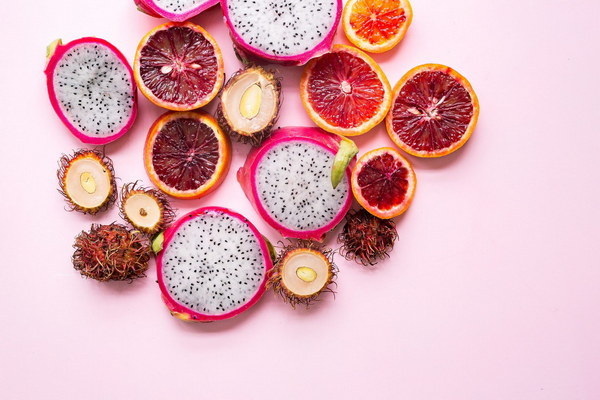Winter Kidney Care Why Oranges Are a Renal Delight
In the heart of winter, as the cold air wraps around us, our bodies require extra care to maintain their balance and vitality. One such essential aspect is kidney care, which plays a crucial role in filtering waste and maintaining fluid balance in our bodies. One of the most delightful and beneficial ways to nurture our kidneys during the winter months is by incorporating oranges into our diet. Let's delve into the reasons why oranges are a renal delight and how they can contribute to our overall well-being.
Oranges are a powerhouse of nutrients, offering a rich source of vitamin C, fiber, and other essential vitamins and minerals. These nutrients play a vital role in supporting kidney health, making oranges an ideal food choice for winter kidney care.
Firstly, vitamin C is a potent antioxidant that helps in reducing oxidative stress in the kidneys. Oxidative stress occurs when the body is overwhelmed by free radicals, which are unstable molecules that can damage cells and tissues. By neutralizing these free radicals, vitamin C helps protect the kidneys from potential harm, ensuring they can function optimally.
Moreover, oranges are an excellent source of fiber, which is crucial for maintaining healthy kidney function. Dietary fiber helps to regulate bowel movements, which in turn reduces the risk of constipation and the accumulation of toxins in the body. By promoting regular bowel movements, oranges support the kidneys' ability to filter waste and toxins efficiently, reducing the strain on this vital organ.
Another remarkable aspect of oranges is their potassium content. Potassium is a vital mineral that helps regulate blood pressure and plays a significant role in maintaining the balance of fluids and electrolytes in the body. Adequate potassium intake is essential for kidney health, as it helps prevent kidney stones and reduces the risk of chronic kidney disease. Oranges provide a natural and delicious way to increase potassium intake, making them a perfect choice for winter kidney care.

In addition to their nutritional benefits, oranges have several other properties that make them a renal delight:
1. Hydration: Oranges are a hydrating fruit, containing a high water content. Staying hydrated is essential for kidney health, as it helps flush out waste and toxins from the body. Drinking orange juice or eating oranges can contribute to maintaining proper hydration levels during the winter months.
2. Antiviral properties: Oranges have antiviral properties that can help ward off colds and flu, which are more prevalent during the winter season. By keeping the immune system strong, oranges support kidney health and reduce the risk of kidney infections.
3. Low in sodium: Unlike many other fruits, oranges are low in sodium, making them a suitable choice for individuals with kidney conditions that require a low-sodium diet. This characteristic makes oranges an excellent addition to a renal-friendly diet.
Incorporating oranges into your winter diet is not only beneficial for kidney health but also offers a delightful taste experience. Here are a few ideas to enjoy oranges during the winter season:
1. Squeeze fresh orange juice and add a dash of honey for a refreshing drink.
2. Include oranges in salads for a burst of flavor and texture.
3. Make a homemade marmalade using oranges and enjoy it on toast or as a spread for sandwiches.
4. Add orange slices to smoothies or yogurt for added flavor and nutrition.
In conclusion, oranges are a renal delight during the winter months. Their rich nutritional profile, including vitamin C, fiber, and potassium, supports kidney health and helps maintain the body's balance. By incorporating oranges into your diet, you can enjoy their delicious taste while promoting overall well-being and kidney care. So, don't hesitate to embrace the citrusy goodness of oranges this winter season!









